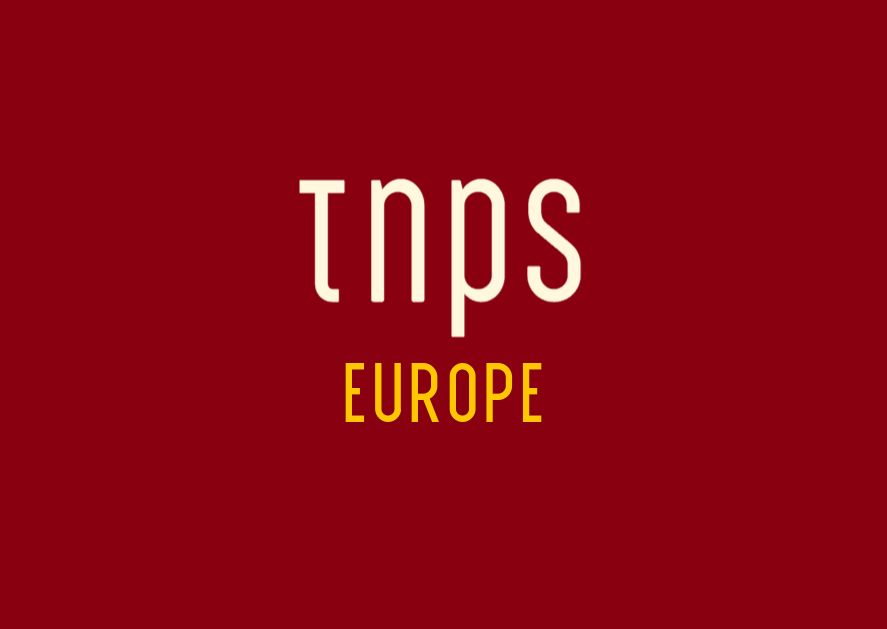For bricks & mortar booksellers that emerge from the pandemic in one piece perhaps the biggest battle is still to come. Because lockdown has shown publishers they can not just survive with fewer high street outlets, but that they can thrive with fewer high street outlets.
Hard to imagine now, more than six months after the pandemic first brought Europe to a standstill, but back in March publishers were running about like headless chickens as it became clear bricks & mortar bookstores were not going to be given special status amid lockdown.
Amid talk of layoffs, furloughs, delayed releases, publisher bankruptcies and an array of other the-sky-is-falling hysteria predictions, few were willing to think the unthinkable – that wonderful as bookstore are, maybe they weren’t indispensable after all.
Then realities started to kick in. While bookstores struggled for survival, publishers were mostly buoyant. Consumers didn’t abandon books. They just found alternative consumer-points.
The latest evidence for this comes with the Bloomsbury results, which per The Bookseller today, presented the company’s highest H1 earnings since 2008, where,
“signficantly higher” online book sales and e-book revenues led to year-on-year profit growth of 60% to £4m in the six months ended 31st August 2020.
Echoing the sentiments that opened this post, the Bookseller said:
Bloomsbury raised £8.4m at the beginning of the lockdown, predicting then that print sales would fall dramatically. However the feared drop off in sales never materialised, and these results will be seen as a barometer for the trade, with strong sales at Bloomsbury’s consumer wing evidence of how the big trade publishers are weathering the pandemic.
And it seems Bloomsbury has,
continued to trade well during the first six weeks of the second half.

The numbers are worth looking at closely:
A 10% revenue rise for the period helped the 60% profits boost. But this next bit is perhaps most significant:
Bloomsbury said print book sales were worth £57.7m this year, compared with £56.6m. Digital sales grew to £17.6m against £11.2m.
That’s a 2% rise in print sales despite bookstores being closed for much of the period. And a 57% rise in digital sales.
The Bookseller reports that,
Academic & Professional revenues increased by 1% to £20.1m and profit was £1.8m. Within this, there was 47% growth in sales of Bloomsbury Digital Resources. Bloomsbury said the accelerated demand for digital products and swift adoption of digital learning by academic institutions helped drive the excellent performance of BDR and accelerated demand for e-books, which offset reduced print sales.
Bloomsbury CEO Nigel Newton said:
Bloomsbury is in a strong financial position. The strength of our financial position meant that we continued to operate effectively, invest in new content, and build a strong pipeline of authors and titles. Bloomsbury is well positioned for the future, with sufficient working capital and significant headroom for acquisitions opportunities.
Newton concluded,
I’m an optimist, so without having any factual basis for saying this whatsoever I think Christmas is going to be absolutely brilliant for the book industry. More and more people are sadly made unemployed, but paperback books are an affordable luxury and I think the superpower of books is that people want them in lockdown.
With the UK likely to be in near-total lockdown as Christmas approaches, it may well be “absolutely brilliant” for publishers and online consumer-points. But it could prove a watershed moment for bricks & mortar stores that have not been able to, or have been unwilling to, adopt a hybrid business model.
Even if, as we all fervently hope but no-one can guarantee, the next Covid-19 wave is the last, the lockdown season is likely to take us well past Easter 2021.
As I said back in April,
The longer the pandemic crisis continues, the longer time for dedicated print readers to migrate to digital, even as print-based stakeholders like booksellers struggle to survive. Many will stay hybrid readers or even transition fully to digital afterwards.
To be clear, there’s no suggestion this will be an extinction-event for print – but when this is over and we return to whatever the new normal may be, digital books will play a far larger part in the lives of consumers and publishers than we could ever have imagined as this new decade began just a few short months ago.
Cogent words, according to Porter Anderson at Publishing Perspectives, who took the quote from the Buchmesse report on audiobooks (believing the quote to be by someone else). Anderson then deleted the quote when he realised who wrote it – you can still see the gap here. 🙂
Six months on, the analysis remains cogent, and with months of lockdown ahead of us, publishers have relatively little to worry about, while high street booksellers teeter on the brink of oblivion.
In an op-ed from Philip Jones, The Bookseller calls for more support for bricks & mortar booksellers. Philip Jones said:
So what can we do? Look to the Booksellers Association, and support it in getting resources and information to booksellers. It is a small team working incredibly hard to get ahead of the situation and keep booksellers at the top of the agenda. Adopt a local bookshop (including a chain one), and either visit and buy physically, or virtually. If you are a publisher, author or influencer, consider using Bookshop.org (or an alternative) to push sales towards indies—in the US, Simon & Schuster added “buy” buttons to all its websites leading to the Bookshop.org site, in addition to donating its own affiliate fees to charity. I would go a step further: take down the Amazon links, too.
Wait, what? Take down the Amazon links? Seriously, Phil, that’s not going to happen, and for most authors and publishers it would be senseless to even think about.
Business is a constant act of pragmatism and compromise. Principled stands are for editors.
But authors and publishers do need to rise to the occasion and do their bit to ensure the survival of the bricks & mortar stores, because without them Amazon really will become the all-powerful determiner of the industry that its opponents argue it already is.
The numbers emerging of rising online and digital sales are of course making Amazon stronger. But the solution is to offer consumers more choices, not fewer. Removing Amazon links and then expecting the consumer to buy from another source is just wishful thinking.
But the real problem here for bricks & mortar booksellers, to come full circle to the headline and why it matters, is the fact that publishers are doing so well despite the bookstore lockdowns. A reminder Bloomsbury print sales rose 2% even with bookstores closed. Online sales carries the day for print. And then there’s digital up 57%. And all importantly profits up 60%.
As other publishers seeing similar trends examine their balance sheets and do the math… The clear and present danger is that publishers will begin to question the very reason why they treat high street bookstores with such reverence, and ask if maybe bookstores are not indispensable after all.
For bricks & mortar booksellers that emerge from the pandemic in one piece perhaps the biggest battle is still to come. Because the pandemic has shown publishers they can not just survive with fewer high street outlets, but that they can thrive with fewer high street outlets.





